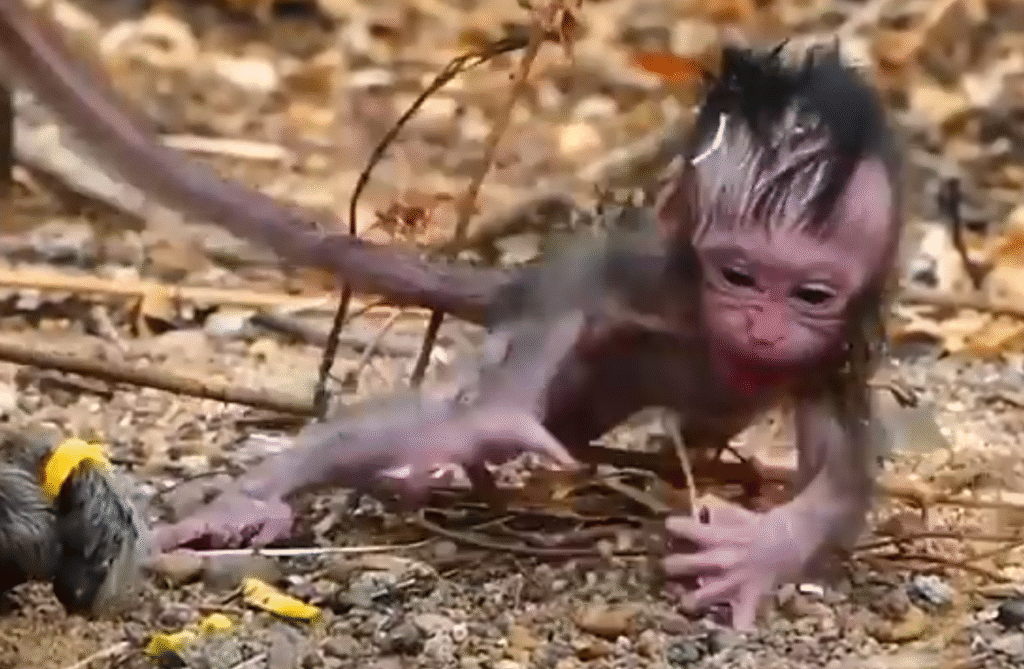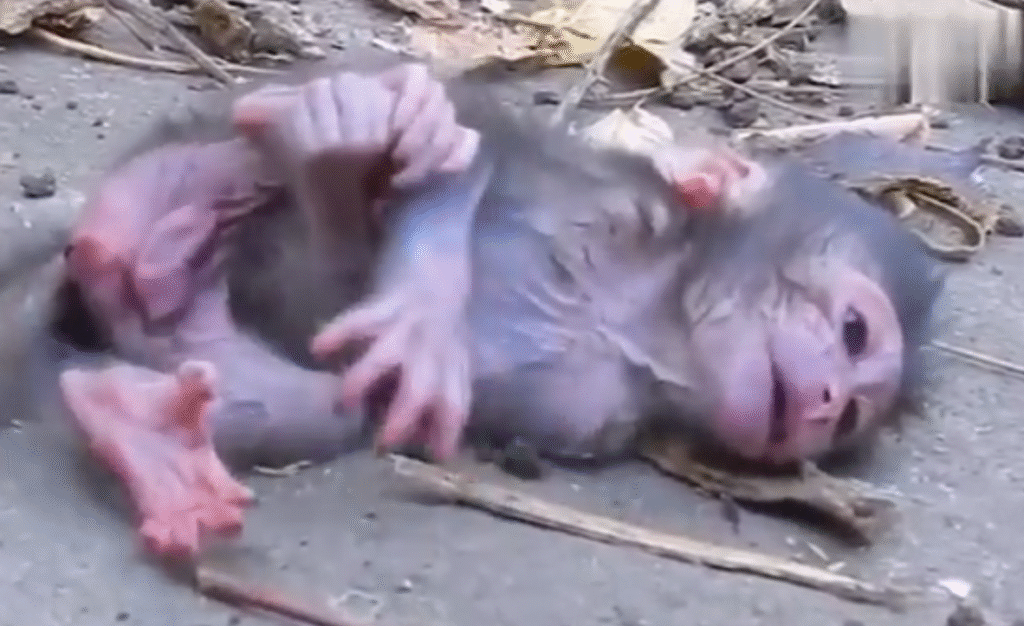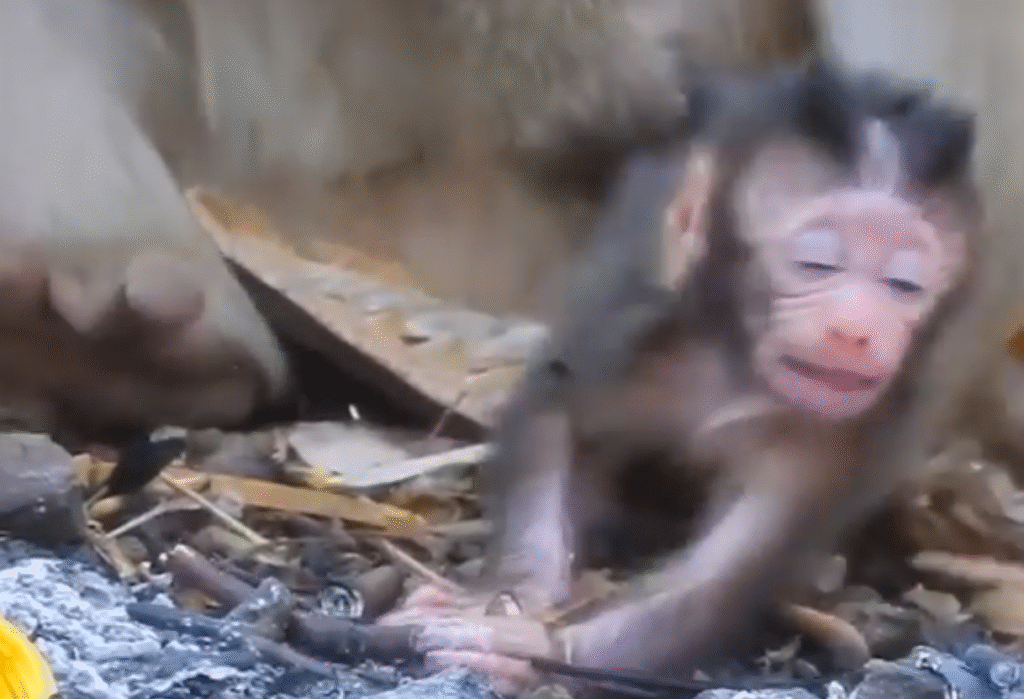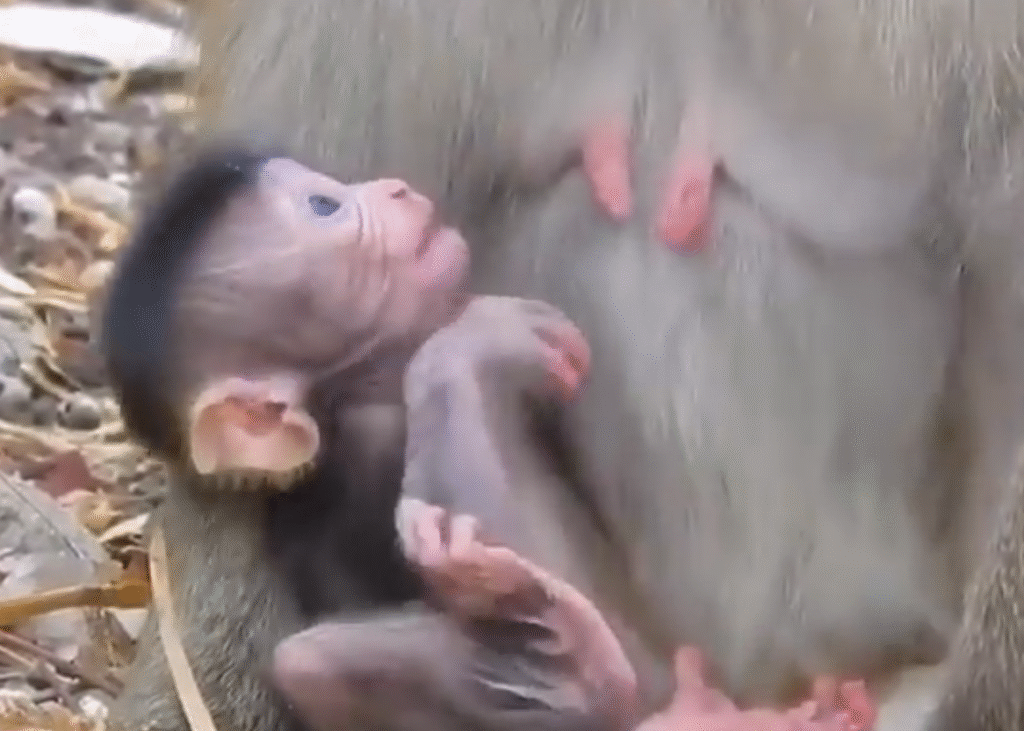It happened in the dusty clearing beneath a tall fig tree — a moment so small, so quiet, that it could have gone unnoticed… but those who saw it would never forget.
A tiny baby monkey, no more than a few weeks old, lost his balance and tumbled to the ground. He rolled clumsily in the dirt, his little limbs flailing as he tried to catch himself. His soft cries echoed through the trees — high-pitched, helpless, filled with confusion and pain.
And yet…
Just a few steps away, his mother stood still. She turned her back.
She didn’t rush to pick him up.
She didn’t even look.
The baby’s name is Toby. And in that moment, his world crumbled.
In the wild, mothers are everything. They feed, protect, carry, teach. To see a mother ignore her baby — especially one in distress — feels unnatural, even cruel. But this wasn’t the first time observers had noticed Toby being pushed aside. In the days leading up to the incident, his mother had often distanced herself from him, grooming others or wandering off while he struggled to follow.
No one knew why.
Was she young and unprepared?
Was something wrong with Toby?
He wasn’t sick. He wasn’t aggressive. He was just… gentle. Quiet. A little clumsy. Like any baby learning how to be part of the world.
After he rolled in the dirt, Toby lay still for a moment. Covered in dust, his wide eyes scanned the trees, hoping for comfort. His tiny hands reached toward his mother. But she kept walking.
Observers from a nearby sanctuary watched the heartbreaking scene unfold. One volunteer whispered, “He just wants her to look back… just once.”
But she didn’t.
Instead, it was another adult female in the troop who eventually walked over. Not his mother, but an older monkey named Zara — known to be nurturing, even toward babies who weren’t her own. She didn’t scoop Toby up, but she sat beside him, allowing him to lean against her leg. He clung to her instinctively, just needing someone — anyone — to make him feel seen.
For the rest of the day, Toby followed Zara at a distance, looking over his shoulder for his mother. She never came.
It’s easy to assume animals love the same way we do. And often, they do. But there are times when trauma, stress, or confusion affects even the strongest bonds. Toby’s mother may have suffered her own loss or experienced something that disrupted her ability to connect. It’s not an excuse — but it’s a glimpse into the complexity of nature.
Still, none of that was Toby’s fault.
Rescuers made the difficult decision to monitor Toby more closely. If rejection continued, they would intervene for his safety and emotional well-being. No baby should grow up feeling unloved — not in the wild, and not in a sanctuary.
Over the next few days, Toby began to change. Not by giving up, but by adapting. He learned to stay close to Zara and other gentle troop members. He played more. He tripped sometimes, but he got up faster. He stopped looking back so much.
And the most surprising thing?
His mother started watching him again.
From a distance at first. Then a little closer. She didn’t reach out… but she didn’t turn away, either.
Perhaps she was healing. Or maybe she saw Toby finding strength from others and realized he was still hers.
One evening, as the sun dipped low and the air turned cool, Toby sat by a patch of roots, grooming himself. His mother approached quietly and sat nearby. Not touching, not speaking — just present. Toby looked up… and didn’t move away.
That night, they rested under the same tree.
Maybe that’s where healing begins — not with perfection, but with presence.
🐒 Why This Story Matters:
Toby’s struggle is not just an animal story — it’s a mirror. We’ve all felt ignored, rolled in life’s dirt, and cried out for someone to notice. His tiny hands reaching out represent something universal: the need to be loved, especially when we’re at our weakest.
Share his story if you believe that no baby — human or animal — should ever be invisible.



